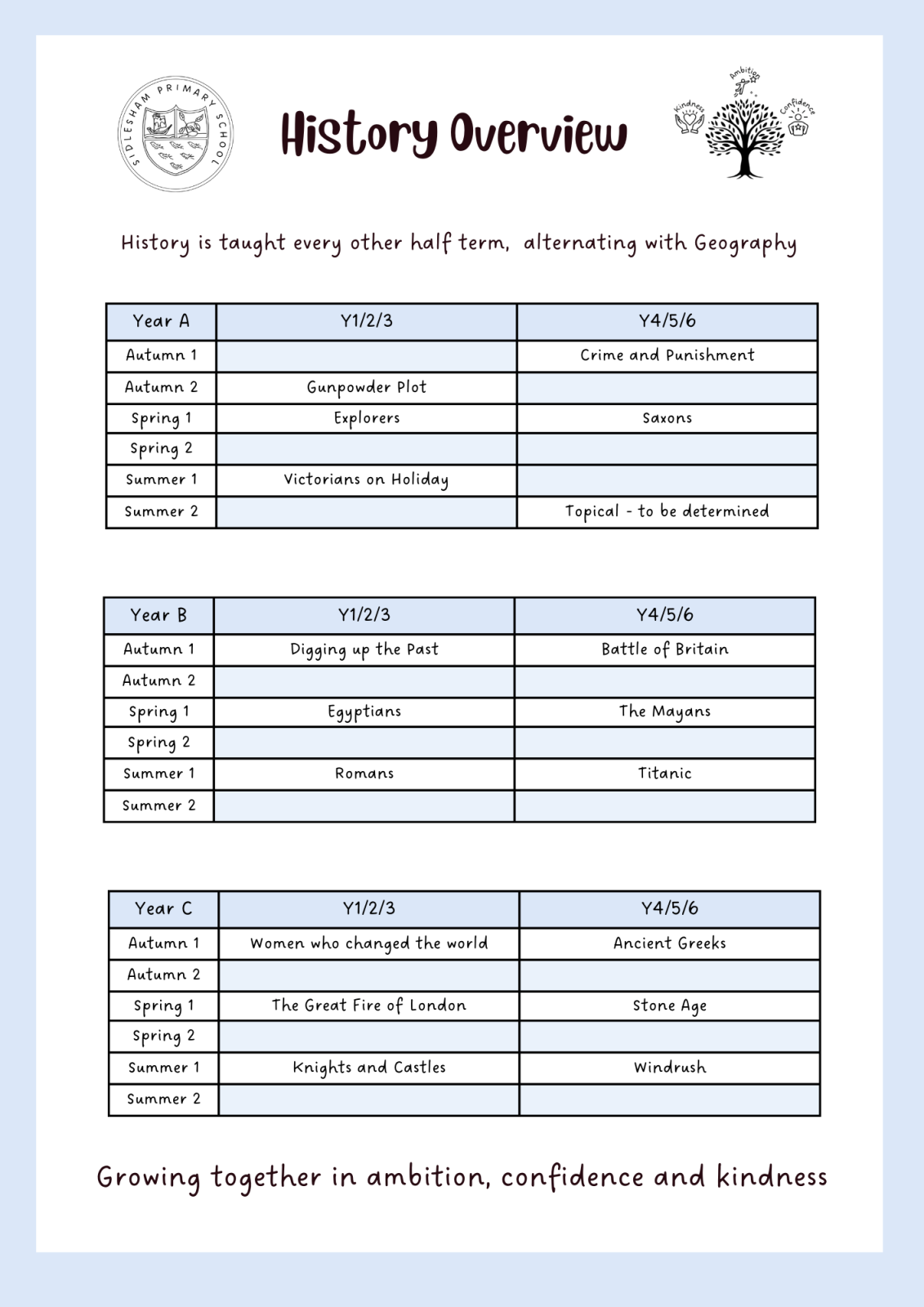History
Subject Overview

Intent
At Sidlesham Primary School, our History curriculum aims to bring the past alive, inspiring curiosity and wonder in every child. We want pupils to build a strong, chronological understanding of Britain and the wider world, learning not only what happened but why. Alongside this substantive knowledge, we develop disciplinary skills—like asking questions, interpreting evidence, and drawing conclusions—that deepen children’s historical thinking.
We ensure that our curriculum reflects diverse perspectives, cultures and experiences. Key vocabulary and enquiry-based learning are woven throughout so that children can see themselves in history and also learn from stories beyond their own experiences. History here helps pupils understand how past events shape our world today and prepares them for more advanced study in Key Stage 3.
Implementation
-
History is taught using a three‑year cycle so children in mixed-age classes revisit, build on, and deepen both substantial content and skills over time.
-
Each unit is structured around both substantive knowledge (dates, civilisations, timelines, historical concepts) and disciplinary knowledge (how to use sources, compare viewpoints, ask historically valid questions).
-
Lessons include a variety of sources—texts, artefacts, images—and make frequent use of key vocabulary. Children learn through enquiry and discussion, interpreting evidence, exploring timelines and drawing connections.
-
Teachers use long‑term plans, knowledge organisers, and resources adapted (such as “grammarsaurus” units) to guide learning and ensure progression across key themes.
-
The subject is assessed through summative assessments at the end of each unit, along with regular monitoring (book looks, learning walks, pupil interviews) to check understanding and foster growth.
Impact
By the end of Key Stage 2, children at Sidlesham will:
-
Speak confidently and with enthusiasm about the periods and events they have studied.
-
Use historical vocabulary accurately and apply disciplinary skills like source analysis, comparison, and making interpretations.
-
Understand chronology and be able to place events in order, both within their own studies and in wider history.
-
Think critically about how past events have shaped the present and draw their own conclusions.
-
Demonstrate deeper understanding by asking and answering challenging historical questions and making connections across periods.
Our assessment processes—combining teacher judgement, summative tasks and monitoring—enable us to track children’s progress in both knowledge and skills, ensuring our history curriculum is delivered with clarity, depth, and relevance.
History Knowledge Organisers






